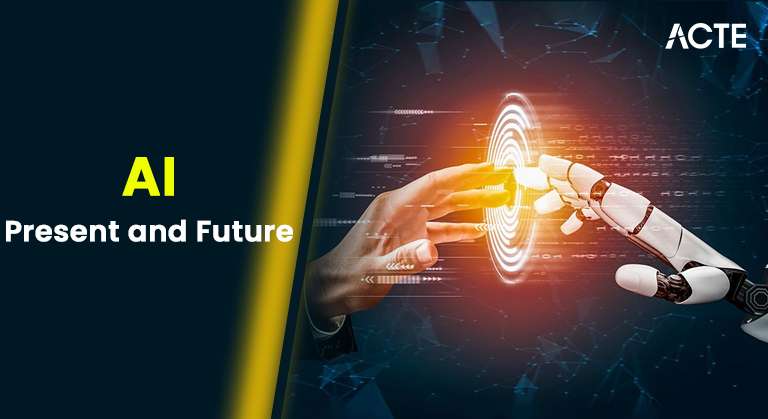
- Introduction to Artificial Intelligence
- Understanding AI Goals and Objectives
- Automation and Efficiency Enhancement
- Mimicking Human Intelligence
- Problem-Solving and Decision-Making
- Personalization and Recommendation Systems
- Improving Human-Machine Interaction
- AI in Healthcare, Finance, and Other Industries
- Ethical Considerations in AI Development
- Future Trends in AI
- Conclusion
Introduction to Artificial Intelligence
Artificial Intelligence (AI) is the field of computer science focused on creating machines and systems that can perform tasks that would typically require human intelligence. These tasks include problem-solving, learning, perception, language understanding, and decision-making. AI is becoming integral to many industries and everyday life, with applications ranging from voice assistants like Siri to autonomous vehicles. AI aims to develop systems that can reason, learn, and adapt autonomously to solve complex problems, enhance productivity, and even mimic human behavior—a key focus in any comprehensive Data Science Training. The field of AI encompasses various subfields, such as machine learning, natural language processing, robotics, and computer vision. These subfields collectively contribute to the broader goal of developing intelligent systems that can perform various tasks with increasing autonomy and efficiency.
Eager to Acquire Your Data Science Certification? View The Data Science Course Offered By ACTE Right Now!
Understanding AI Goals and Objectives
- Replicate Human Cognitive Abilities: AI systems are designed to mimic human perception, reasoning, problem-solving, learning, and decision-making processes.
- Enhance Automation and Efficiency: By automating tasks traditionally performed by humans, AI can increase productivity and reduce human error, resulting in more efficient processes.
- Provide Better Insights and Decision Support: AI aims to improve decision-making by analyzing large datasets, identifying patterns, and making predictions that are difficult or impossible for humans to achieve manually.
- Improve Human-Machine Collaboration: AI, including techniques such as the A-Algorithm in AI , seeks to create systems that can collaborate with humans, providing assistance, making suggestions, and augmenting human capabilities.
AI can be classified into two categories: Narrow AI (Weak AI), which specializes in one task, and General AI (Strong AI), which theoretically possesses the ability to perform any cognitive task that a human can.
Automation and Efficiency Enhancement
One of the most significant contributions of AI is its ability to automate repetitive, mundane, and time-consuming tasks. By streamlining routine processes, AI enhances efficiency and minimizes the need for constant human involvement across various sectors. In manufacturing, AI-powered robots can assemble products, inspect quality, and manage inventory with remarkable precision. In the realm of data processing, AI algorithms are capable of analyzing massive datasets and generating insights much faster than human analysts. Administrative functions such as scheduling, email sorting, and customer support are increasingly being handled by AI tools like chatbots and virtual assistants. Additionally, the transportation industry is being transformed by self-driving cars and drones, which automate driving and delivery services. These automation capabilities, powered by Artificial Intelligence, not only boost productivity but also allow human workers to shift their focus toward more creative and complex tasks that require emotional intelligence, intuition, and critical thinking.

Mimicking Human Intelligence
One of AI’s key goals is to replicate human-like intelligence, where machines can learn, reason, and interact in ways that resemble human behavior. There are several components involved in mimicking human intelligence:
- Machine Learning: Machine learning (ML) enables AI systems to improve automatically from experience without being explicitly programmed. With ML, AI systems can recognize patterns in data, make predictions, and improve performance over time.
- Natural Language Processing (NLP): NLP allows machines to understand, interpret, and generate human language. This technology powers virtual assistants like Google Assistant, Alexa, and chatbots, enabling more natural interactions between Artificial Intelligence vs Humans.
- Computer Vision: AI systems with computer vision can “see” and interpret visual data (such as images and videos). This allows them to perform tasks like facial recognition, object detection, and scene understanding, similar to human visual perception.
- Reinforcement Learning: This type of learning mimics how humans learn from trial and error. AI reinforcement learning systems can take actions, receive feedback, and refine their strategies to achieve better results.
These AI components allow systems to interact with humans in more human-like ways, improving the overall user experience and expanding the range of tasks AI can perform.
Ready to Earn Your Data Science Certificate? View The Data Science Course Offered By ACTE Right Now!
Problem-Solving and Decision-Making
AI systems often assist in problem-solving and decision-making by processing large amounts of data and identifying optimal solutions. Traditional decision-making processes may involve subjective judgment and limited data analysis, but AI can provide objective, data-driven insights. Here are a few ways AI is used for problem-solving:
- Predictive Analytics: AI uses historical data to predict future trends and outcomes. This might involve forecasting sales, detecting fraud, or predicting customer behavior in business.
- Optimization: AI algorithms can optimize complex systems, such as Supply Chain Management, by evaluating numerous factors and selecting the most efficient solutions.
- Medical Diagnosis: AI can assist doctors in diagnosing diseases by analyzing medical images, patient histories, and research data, offering insights that humans might overlook.
- Financial Decision-Making: AI is used in trading algorithms and risk assessment tools in the finance sector, where it can analyze vast amounts of data to make quicker and more informed financial decisions.
Interested in Pursuing Data Science Master’s Program? Enroll For Data Science Master Course Today!
Personalization and Recommendation Systems
AI excels in personalization by analyzing user behavior, preferences, and historical data to recommend products, services, and content tailored to individual needs. This capability plays a crucial role in the success of many online platforms. In e-commerce, companies like Amazon and eBay use AI to suggest products based on browsing history, past purchases, and personal preferences. Streaming services such as Netflix and Spotify leverage AI to recommend movies, shows, and music that align with users’ viewing or listening habits. In advertising, AI enables highly targeted marketing by analyzing user data to deliver relevant ads that resonate with specific audiences. Similarly, social media platforms use AI to curate personalized feeds, showing users content that matches their interests and past interactions. These AI-driven recommendation systems, developed through Data science Training, enhance user engagement, improve satisfaction, and ultimately boost sales and content consumption.

AI in Healthcare, Finance, and Other Industries
AI has transformative potential across a wide range of industries. Its ability to analyze large datasets, recognize patterns, and automate complex tasks has far-reaching implications.
- Medical Imaging: AI can detect diseases like cancer by analyzing medical images (X-rays, MRIs, CT scans).
- Personalized Medicine: AI analyzes genetic information to create customized treatment plans.
- Robotic Surgery: AI-powered robots assist in performing precise surgeries with minimal human intervention.
In Healthcare:
In Finance:
- Fraud Detection: AI systems analyze real-time transaction data to detect fraudulent activities.
- Algorithmic Trading: AI-driven algorithms execute high-frequency trading strategies based on complex market data.
- Credit Scoring: Artificial Intelligence evaluates creditworthiness more accurately by analyzing more factors than traditional models.
- Manufacturing: AI optimizes supply chains, improves production processes, and performs predictive maintenance on equipment.
- Agriculture: AI is used for precision farming, predicting crop yields, and automating harvesters.
- Retail: AI helps retailers manage inventory, forecast demand, and personalize the customer shopping experience.
In Other Industries:
Security and Ethical Concerns of Bard AI
As AI systems become increasingly powerful, ethical considerations are critical in guiding their development and use. Key concerns include bias and fairness, as AI can unintentionally reinforce existing biases in training data, leading to discriminatory outcomes in areas such as hiring, lending, and law enforcement. Privacy and security are also paramount, given that AI often handles sensitive personal information, necessitating robust data protection measures to prevent misuse.Artificial Intelligence Applications introduce another challenge around accountability—when AI causes harm or makes mistakes, it is often unclear who should be held responsible. the developers, the users, or the system itself. Additionally, job displacement due to automation raises concerns about the future of work, highlighting the need for strategies to reskill workers and ensure a smooth transition to an AI-driven economy. Ethical AI development must prioritize transparency, fairness, accountability, and the promotion of human well-being.
Preparing for a Data Science Job Interview? Check Out Our Blog on Data Science Interview Questions & Answer
Future Trends in AI
- AI and Robotics: Combining AI and robotics will revolutionize manufacturing, healthcare, and logistics industries with more intelligent automation and autonomous systems.
- AI in Creative Fields: AI will continue to play an increasing role in creative industries, such as music composition, art creation, and writing, leading to new forms of human-AI collaboration.
- General AI: While current AI is specialized and narrow, research into artificial general intelligence (AGI) aims to create machines that can perform any intellectual task a human can.
- AI in Sustainability: AI will assist in addressing global challenges like climate change, resource management, and sustainable agriculture by optimizing energy usage and minimizing waste.
Conclusion
AI is reshaping industries, revolutionizing how we work, and improving the quality of our lives. From enhancing automation and decision-making to creating personalized experiences, AI’s influence is felt across almost every sector. However, as AI continues to advance, it is crucial that we address its ethical implications, ensure responsible development, promote Data Science Training, and manage its impact on employment and society. AI’s potential is immense, but realizing its full benefits while mitigating risks will require careful planning, regulation, and collaboration across sectors. As we move into an AI-driven future, its positive impact will be determined by how we harness and govern these technologies.


